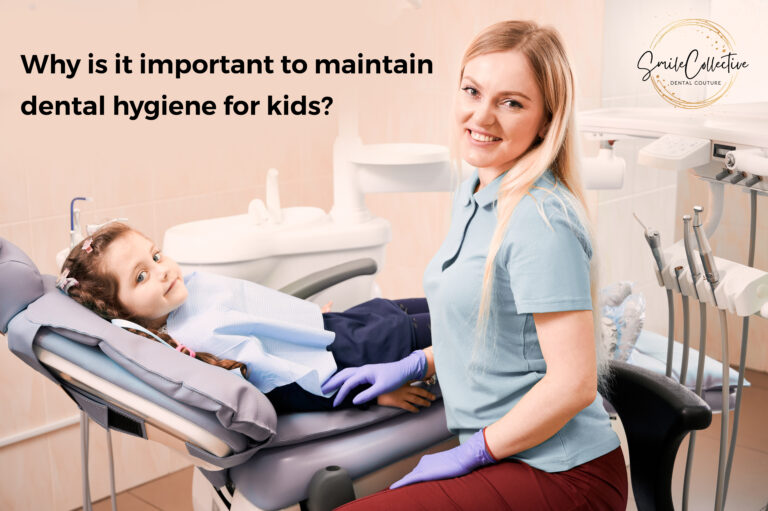Many children experience dental anxiety. As parents, we hesitate to put our children in situations that will make them fearful or uncomfortable, but little did we know that this can stop our kids’ healthy oral development. Dental anxiety is a real problem, and if you or your child suffer from it, you know how crippling it can be. Our goal is to explain the source of this fear and offer some help.
In children, signs of dental anxiety can be noticed as young as 5 years old and can range broadly in severity. Studies have shown that 10% of children and young people have experienced various dental phobias. A child with a mild fear may feel nervous, and emotional, or show some symptoms of stress when it comes to visiting their dentist.
People with dental anxiety often avoid dental appointments and may find it challenging to experience dental treatment regardless of whether it is uncomplicated or complex. Let’s dive deeper into the concept of dental anxiety management!
Why are some children scared of the dentist?
Dental anxiety can impact anyone, but children are especially susceptible. Children may fear the dentist for various causes. Often, parents or siblings fear the dentist, and the child comprehends them.
Other aspects that may lead to dental anxiety contain:
- Negative experiences in the past
- Fear of needles or injections
- The smell or sight of the dental environment
- Fear of panicking or loss of control
- Concern about the expense of dental appointments
Impact of Dental Anxiety on Children
If dental anxiety becomes a long-term issue, the outcomes can be lifelong. It can include the lifetime of avoiding required dental procedures, which could lead to a deterioration in general oral health. The cycle then resumes as new dental problems due to badly maintained teeth and gums lead to health damage.
Let us tell you that avoidance of dental treatments often leads to cavities, which have been seen to lead to more missing, unfilled teeth, and problematic teeth. This can also lead to emotional stress such as inferiority and shame.
Further, the impacts of dental anxiety contain crying, negative thoughts, aggression, sleep disorders, unbalanced eating habits, and greater self-medication. Impacts on social interactions, performance at school or work, self-esteem, and enthusiasm levels have also been reported.
Tips to Help a Child with Dental Anxiety
Start Dental Habits as Early as Possible
The earlier you start dental anxiety management, the better. Keep telling your child the significance of good oral health and let them be familiarised with their dental procedures. If your child is older, it is never too late to start.
Help them manage their Feelings and Emotions
Children are not able to handle fear, anxiety or anything. It is, therefore, best to help them accept fear as a regular reaction rather than giving the impression that it’s not real or fine; allow them to communicate their feelings about the coming appointment or present situation.
Affirm your trust in them but don’t “sugar-coat” their experience; ask questions without giving them additional anxiety. Asking ‘How are you feeling about visiting the doctor/dentist?’ is a much sounder question than ‘Are you anxious about visiting the doctor/dentist?’
Relaxation Techniques
According to research, simple deep breathing routines, such as deep inhalation and slow exhalation (while concentrating on how the breathing feels) or asking a child to blow bubbles via a wand, can help bring comfort.
Muscle relaxation methods can also help as they relieve your child’s body.
Watch how you portray your dentist experiences to your child
If you struggle with your dental anxiety, phobia, or something like that, show your child how you are working through it.
Avoid using any adverse words around your kid when speaking about the dentist or any dental practices that they may be experiencing. Let the dental staff instruct your child on dental terminology (e.g., filling, drill, scraper) to avoid chaos or preconceived anxieties about these terms.
Consider a pretend dentist office visit
Do a “pretend visit” a few times with your kid before the actual visit. Keep your child entertained by letting them role-play patient, dentist, etc. They can even practice with a play dentist kit.
Reinforce the Positive
Reward your kid for a positive demeanour at the dentist with something you know they like (e.g., a preferred item or favourite activity like a sticker, video game, sidewalk chalk, etc.).
Something small can be rewarded, even if your child did not get through every step.
Look for a Caring and Supportive Dentist
Take your child to a dentist who wants to help relieve your child’s anxiety, the dentist should:
- Communicate with them in a friendly/calm/understanding tone with easy-to-understand terms
- Use reassuring words, stories, etc. to entertain your child
- Recognize positive behaviour displayed by your child
- Create a plan with you to help perform through your child’s dental anxiety if required – some dentists will provide sedative medications
A child-friendly dentist can also provide demonstrations of dental procedures on a doll to help put your child at ease before their exam, cleaning, etc. If you are looking for some dental professionals who can provide comfort and proper treatment for your child, then Smile Collective is definitely for you!
Let our dental experts help you establish good habits early that will translate to a lifetime of healthy teeth and gums. And, of course, seeing the dentist regularly is one of the best habits to establish.



